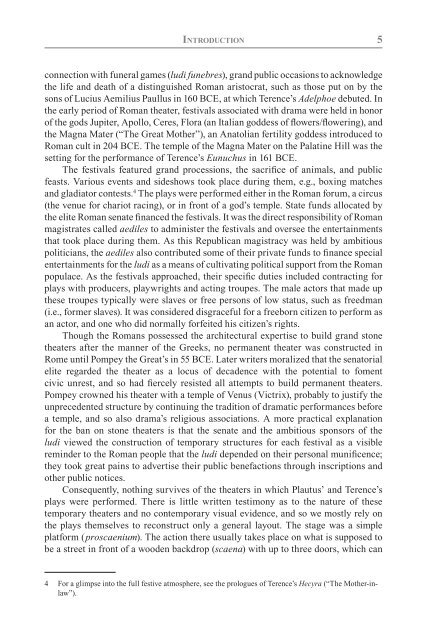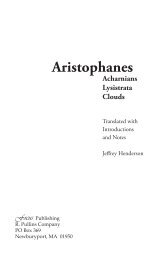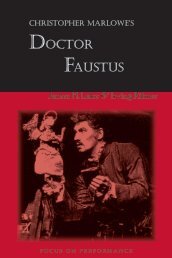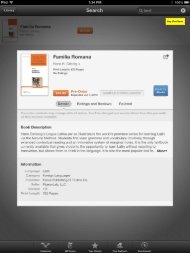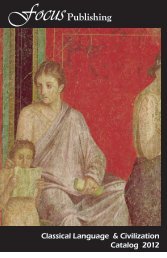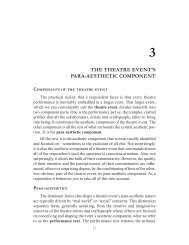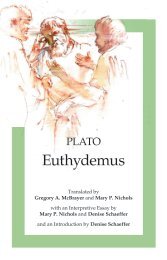ROMAN COMEDY - Focus Publishing
ROMAN COMEDY - Focus Publishing
ROMAN COMEDY - Focus Publishing
- No tags were found...
Create successful ePaper yourself
Turn your PDF publications into a flip-book with our unique Google optimized e-Paper software.
In t r o d u c t i o n 5connection with funeral games (ludi funebres), grand public occasions to acknowledgethe life and death of a distinguished Roman aristocrat, such as those put on by thesons of Lucius Aemilius Paullus in 160 BCE, at which Terence’s Adelphoe debuted. Inthe early period of Roman theater, festivals associated with drama were held in honorof the gods Jupiter, Apollo, Ceres, Flora (an Italian goddess of flowers/flowering), andthe Magna Mater (“The Great Mother”), an Anatolian fertility goddess introduced toRoman cult in 204 BCE. The temple of the Magna Mater on the Palatine Hill was thesetting for the performance of Terence’s Eunuchus in 161 BCE.The festivals featured grand processions, the sacrifice of animals, and publicfeasts. Various events and sideshows took place during them, e.g., boxing matchesand gladiator contests. 4 The plays were performed either in the Roman forum, a circus(the venue for chariot racing), or in front of a god’s temple. State funds allocated bythe elite Roman senate financed the festivals. It was the direct responsibility of Romanmagistrates called aediles to administer the festivals and oversee the entertainmentsthat took place during them. As this Republican magistracy was held by ambitiouspoliticians, the aediles also contributed some of their private funds to finance specialentertainments for the ludi as a means of cultivating political support from the Romanpopulace. As the festivals approached, their specific duties included contracting forplays with producers, playwrights and acting troupes. The male actors that made upthese troupes typically were slaves or free persons of low status, such as freedman(i.e., former slaves). It was considered disgraceful for a freeborn citizen to perform asan actor, and one who did normally forfeited his citizen’s rights.Though the Romans possessed the architectural expertise to build grand stonetheaters after the manner of the Greeks, no permanent theater was constructed inRome until Pompey the Great’s in 55 BCE. Later writers moralized that the senatorialelite regarded the theater as a locus of decadence with the potential to fomentcivic unrest, and so had fiercely resisted all attempts to build permanent theaters.Pompey crowned his theater with a temple of Venus (Victrix), probably to justify theunprecedented structure by continuing the tradition of dramatic performances beforea temple, and so also drama’s religious associations. A more practical explanationfor the ban on stone theaters is that the senate and the ambitious sponsors of theludi viewed the construction of temporary structures for each festival as a visiblereminder to the Roman people that the ludi depended on their personal munificence;they took great pains to advertise their public benefactions through inscriptions andother public notices.Consequently, nothing survives of the theaters in which Plautus’ and Terence’splays were performed. There is little written testimony as to the nature of thesetemporary theaters and no contemporary visual evidence, and so we mostly rely onthe plays themselves to reconstruct only a general layout. The stage was a simpleplatform (proscaenium). The action there usually takes place on what is supposed tobe a street in front of a wooden backdrop (scaena) with up to three doors, which can4 For a glimpse into the full festive atmosphere, see the prologues of Terence’s Hecyra (“The Mother-inlaw”).


